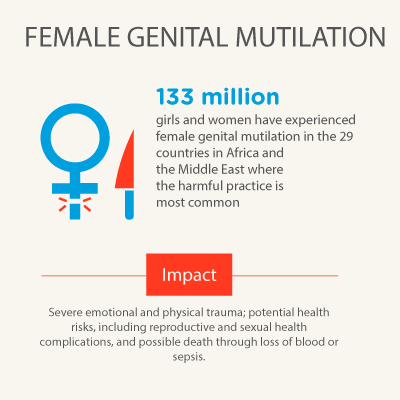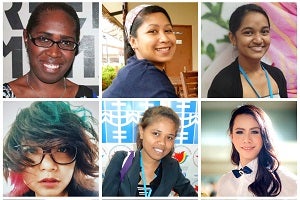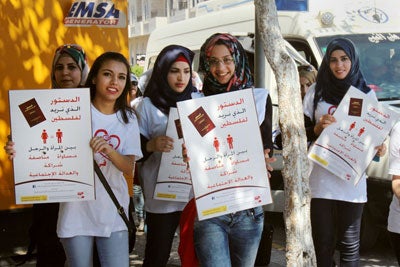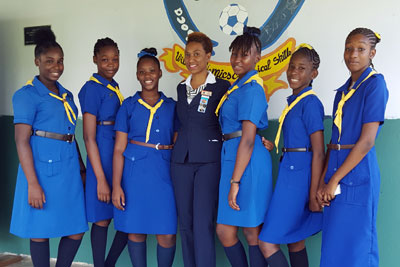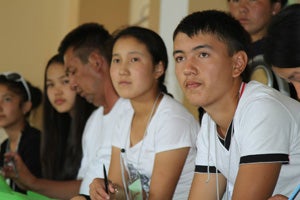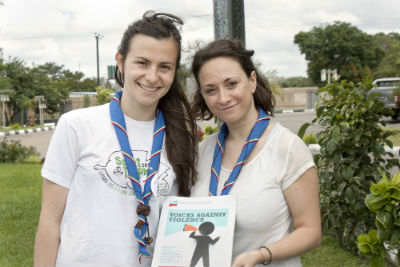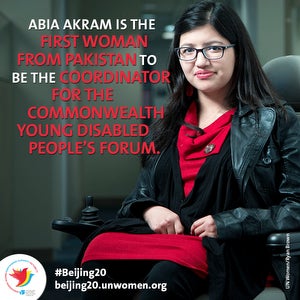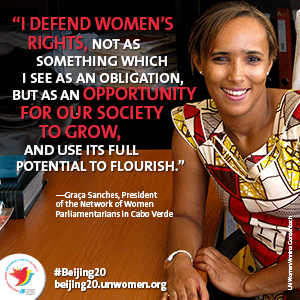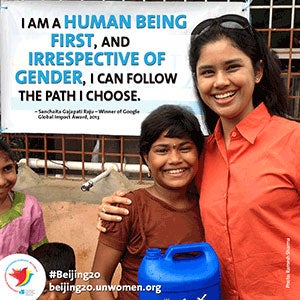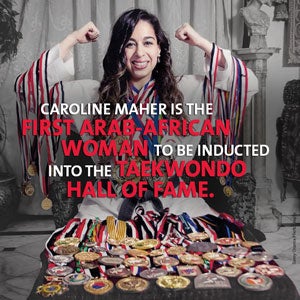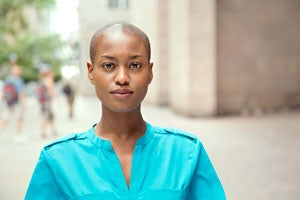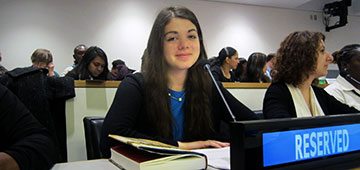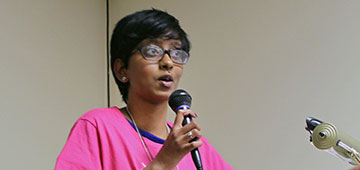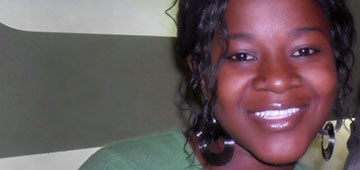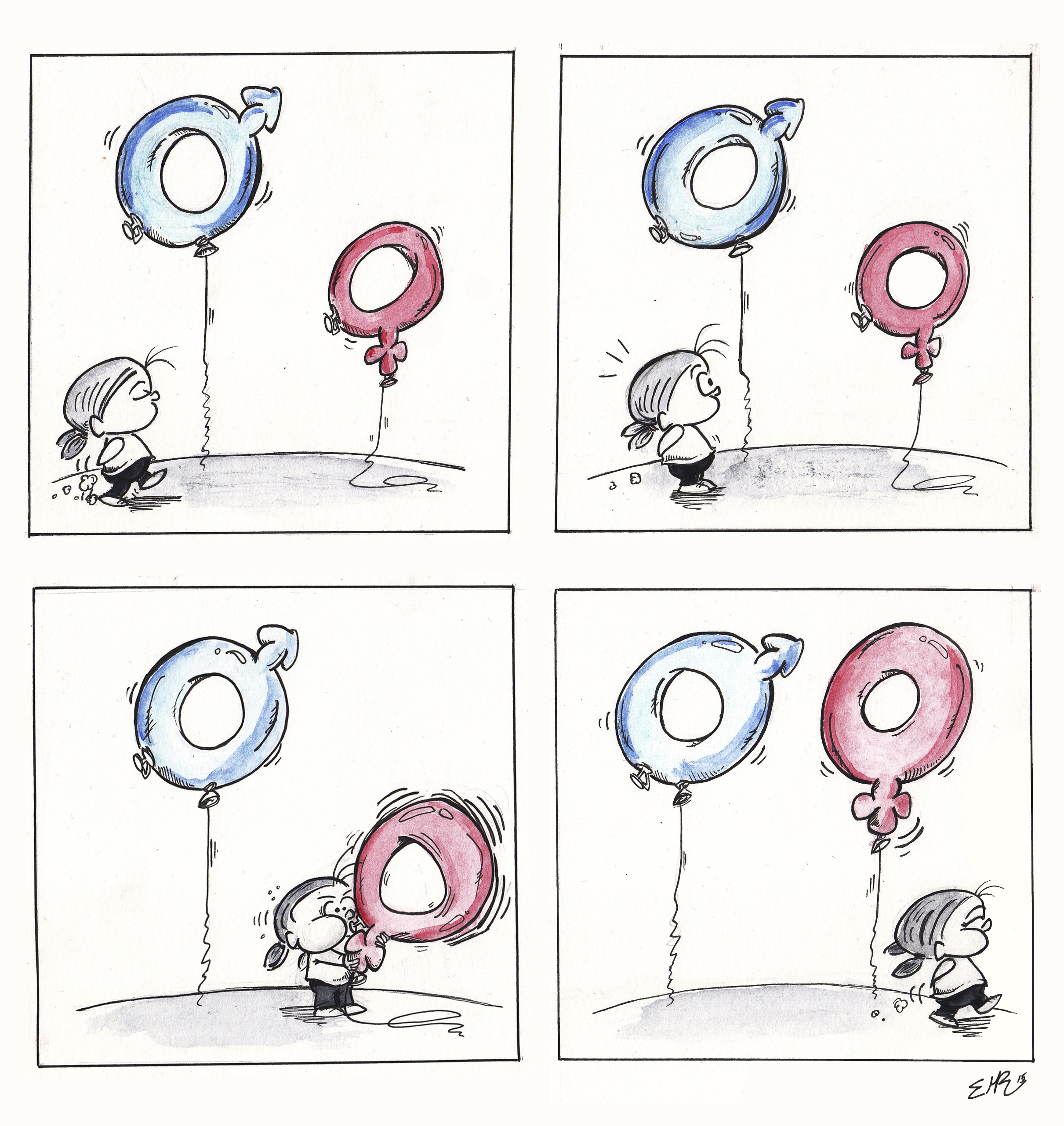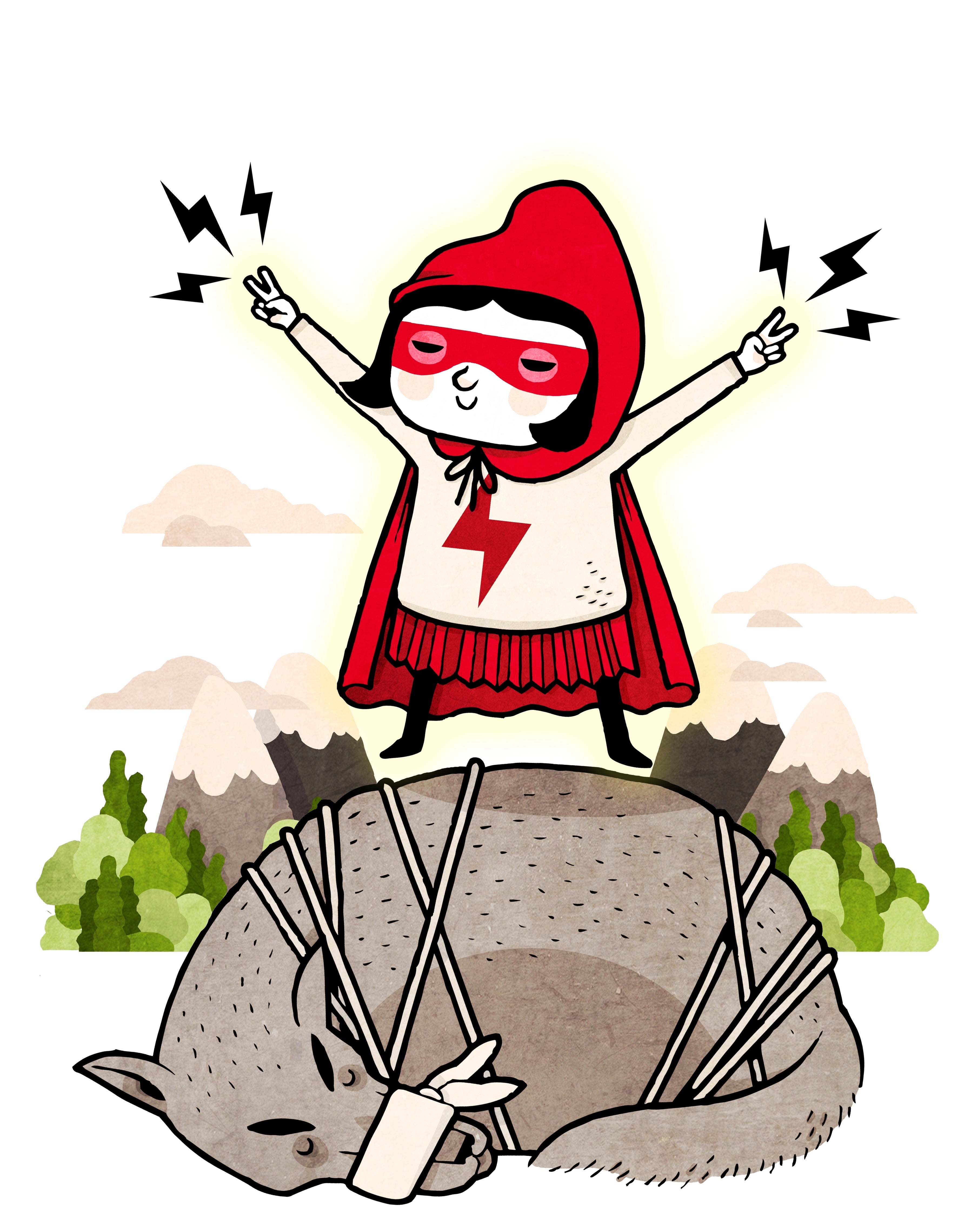International Day of the Girl Child 2015
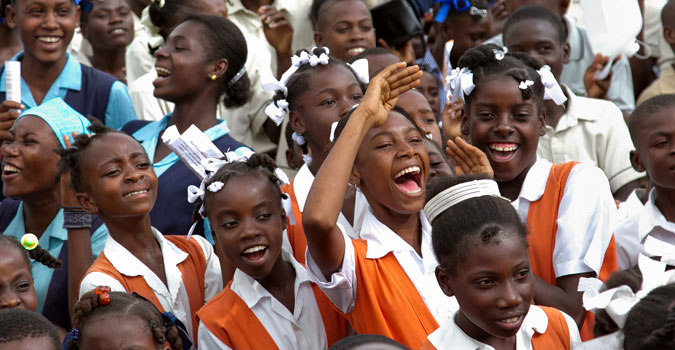
Messages | Feature stories | Girl power | Girl voices | Girls sketch |
Join the conversation
Girls are our future. This year, for the fourth annual International Day of the Girl Child, on 11 October, join global efforts to ensure a world free of discrimination for young women and girls.
This year’s theme focuses on adolescent girls and the Sustainable Development Goals, which set a range of international targets, including on gender equality, to be achieved by 2030.
As a particularly vulnerable demographic, adolescent girls face social, economic and political barriers. While they hold the potential to become leaders and effect change, their empowerment can be hindered by factors such as unwanted pregnancy, forced early marriage, gender-based violence and limited access to higher education and reproductive health services.
In numbers
- Worldwide, more than 700 million women were married as children (below 18 years of age). More than one in three—or some 250 million—were married before 15. And child brides are often unable to effectively negotiate safe sex, leaving them vulnerable to sexually transmitted infections and unwanted pregnancy [1].
- Every 10 minutes, somewhere in the world, anadolescent girl dies as a result of violence [2].
- In emergencies, adolescent girls are especially vulnerable to sexual violence, and in some cases, are abducted and exploited for sexual purposes by armed groups [3].
- Nearly half (44 per cent) of adolescent girls worldwide aged 15 to 19 think a husband or partner is justified in hitting or beating his wife or partner under certain circumstances [4].
Messages
In his statement to mark this year’s international day, UN Secretary-General Ban Ki-moon notes: “Our task now is to get to work on meeting the SDG targets and making good on our promises to give girls all the opportunities they deserve as they mature to adulthood by 2030.” Read his full statement here.
In her statement to mark this year’s international day, UN Women Executive Director Phumzile Mlambo-Ngcuka notes: “Today is the Day when we focus our attention on the Girl Child, but it is not a day in isolation. It is part of a massive and relentless drive towards a world of equality: a Planet 50-50 by 2030.” Read her full statement here.
Feature stories
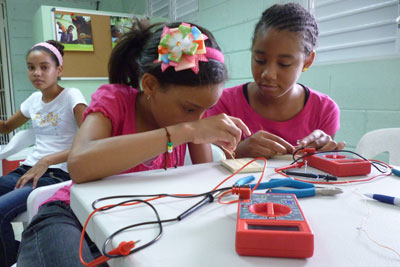
Girls bridge the digital gender gap in Central America
With support from UN Women's Fund for Gender Equality, nearly 3,000 girls and youth in Costa Rica and the Dominican Republic are using technology and innovative strategies to achieve gender equality in male-dominated fields.
Malawi Chief annuls 330 child marriages
In a country where half of girls are married before age 18, UN Women played a key role in lobbying for a new law that raises the legal age to wed, while raising awareness and working with traditional leaders to annul marriages.
Youth’s Voice from Asia-Pacific
At least 750 million of young persons live in Asia and the Pacific. Their active involvement, participation and voice is essential to achieve gender equality. UN Women’s Youth’s Voice is an open space for young people in the region to express themselves and contribute with their ideas and enthusiasm to build a fairer and more equitable world for all.
Girls and young women gain ground in male-dominated fields
With support from UN Women’s Fund for Gender Equality, young women around the world are entering non-traditional economic and political spheres, and redefining leadership on their own terms.
“Education is power” – Girl Guide teacher/trainer
A teacher and Girl Guide Leader from Grenada speaks about the importance of non-traditional education and how she will use the “Voices against Violence” curriculum co-developed by UN Women and the World Association of Girl Guides and Girl Scouts as a tool to prevent violence among girls.
Through summer schools and special youth workshops, students and teachers across Kyrgyzstan are learning how to empower girls and become young gender activists in their own schools and communities.
International Youth Day
For International Youth Day on 11 August 2015, UN Women highlighted work with the World Association of Girl Guides and Girl Scouts to end violence against women and girls.
Girl power
Girl voices
For Nigerian girls, education is the key that opens doors to progress
Raised in Nigeria, with hard-won scholarships Nnenna Agba graduated from Texas A&M University with a Bachelor’s degree in Chemistry; she also holds a Master’s of Science degree in Urban Affairs. Nnenna is supporting the education of her four sisters in Nigeria, and is the face of Kechie’s Project, an NGO that provides scholarships to girls from Nigerian schools.
“Before Beijing, no one really talked about the differences between being a girl and being a woman”
Christina has been a Girl Advocate for The Working Group on Girls NGO and works on the Girls Participation Task Force and Steering Committee.
Picture it: The day the Beijing Declaration becomes irrelevant
Nive Sharat Chandran is a 23-year-old From New Zealand who has served as the Vice-President and on the Board of Directors of the YWCA in Auckland.
Relevant yesterday, relevant today
Mtisunge Kachingwe is a 23-year-old young woman from Malawi working as a doctor at the Queen Elizabeth Central Hospital. She is also an active member of the YWCA.
Girls sketch
UN Women together with the European Commission, the Belgian Development Cooperation, and UNRIC organized a Comic and Cartoon Competition on Gender Equality in 2015. The competition invited young European comic and cartoon artists and art students, aged 18 to 28 years, to picture their understanding of women's rights and gender equality through cartoons and comics—without words. Below are the first and second-place winners. Learn more here.
Join the conversation
Join the conversation around the International Day of the Girl Child using the hashtag #dayofthegirl and follow @UN_Women on Twitter. A social media package with images and messages in English, Spanish and French is available here
#dayofthegirl TweetsInternational Day of the Girl Child in previous years
2014
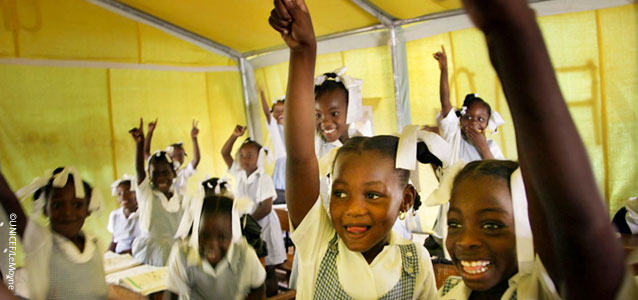
In 2014, the theme was "Empowering adolescent girls: Ending the cycle of violence". UN Women Executive Phumzile Mlambo-Ngcuka spoke at an event at UNICEF House co-sponsored by UNICEF, UN Women, UNFPA and Plan International. Check out our special In Focus compilation on the Girl Child, one of the 12 critical areas of the Beijing Declaration and Platform for Action.
2013
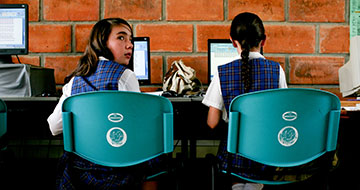
The 2013 theme for the Day was “Innovating for Girls’ Education”. See our In Focus compilation for statements, feature stories, and details of our launch of the innovative “Voices against Violence” curriculum.
2012

See our In Focus compilation for the first International Day of the Girl Child in 2012, focused on the theme of ending child marriage.
Notes
[1] UNICEF (2013). Ending Child Marriage: Progress and prospects, p. 1.
[2] UNICEF data (accessed 6 October 2015): http://www.data.unicef.org/child-protection/violence.html
[3] UNICEF (2014). Hidden in Plain Sight: A statistical analysis of violence against girls, p. 68.
[4] UNICEF (2014). Hidden in Plain Sight: A statistical analysis of violence against girls, p. 147.
